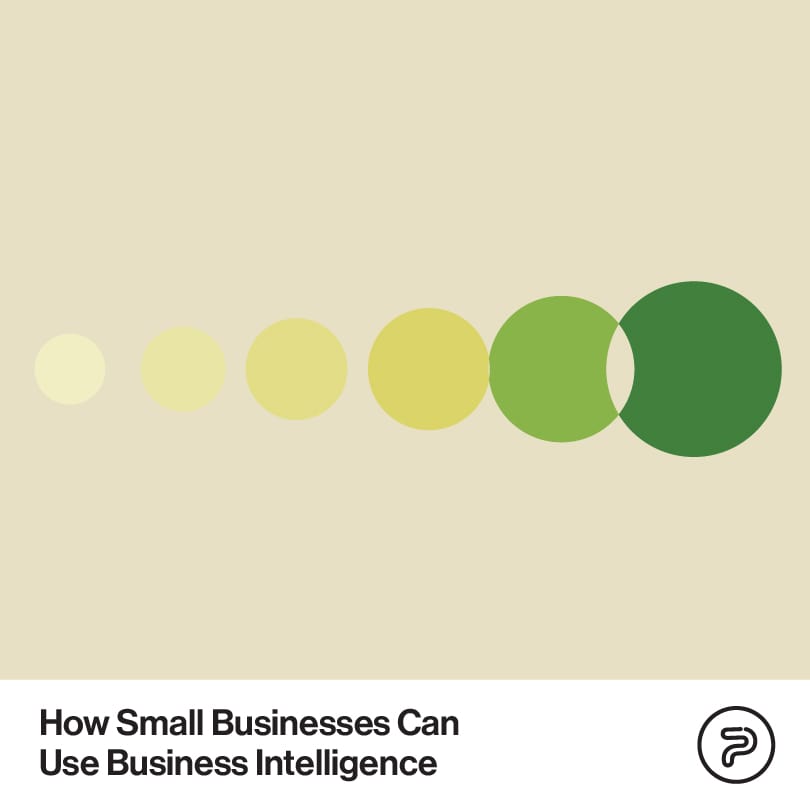There’s a lot of talk about data and tech lately and all business owners now know these two are now the primary driving forces behind growth. The only problem is, people rarely actually speak about the kind of data that needs to be analyzed to ensure that growth. Also, little is talked about the necessary technology that businesses should be using.
Finding the right answers on your own can be quite challenging, especially if you run a smaller business and simply can’t allocate your budget nor your manpower to research these questions and later to implement the right tools and use them.
However, this doesn’t mean that there’s no way for small businesses to leverage the power of tech and data. They can still gather the necessary intelligence that can help them optimize their businesses and reach their targets.
In this blog post, we are talking about just that.
So, What is Business Intelligence Exactly?
BI or business intelligence is a method (or process) of transforming data into valuable info that can, later on, help make important business decisions, help pinpoint trends, and as a result, drive growth.
The process itself involves implementing the right mechanisms and tools to gather, arrange, visualize, and lastly, explain that data so it can make sense in a given business setting. The ultimate goal here is to gather as much info as possible about the business itself and its different areas.
This might sound a bit sterile at first, so let’s use a few examples. The specific use of BI will mostly depend on the industry you’re in and the goals you are striving to achieve.
That being said, here are some of the most prevalent and simplest examples:
- Analyzing customer behavior and performance
- Analyzing data to track profits, revenue, and similar info
- Identifying operational issues
- Identifying market and business trends
- Marketing and sales performance tracking
To further elaborate, an eCommerce company could use BI to learn which are the most popular products among their visitors. Or, they can see what are the most common problems with the products or services they provide to pinpoint areas where they can improve them.
Also, BI can help you with tracking and streamlining the sales process and overall sales performance. Automate the business intelligence process and you will get your sales data analyzed in real-time enabling you to optimize your sales processes and strategies for generating leads. In the same way, you can look at customer satisfaction and finally eradicate the most common problems that have been plaguing them.
Lastly, you can also use BI to keep track of all your financial figures to know whether you are hitting your planned targets or not. Also, when you see that you’ve gotten off track, you can simply create new strategies to get back on.

Using Business Intelligence Tools for Small Businesses
It’s easy to understand from the examples explained above why it’s a good idea to invest in BI. It can help you gain more insight into literally any area of the business you’re running, helping you clarify most issues that would otherwise take way longer to resolve.
For most small business owners, the key here is finding a tool that isn’t too complex, that fits a smaller budget, not to mention, the requirements of a smaller company.
The tools you can use are plentiful and a lot of them can be scaled, meaning that you can get extra and premium features once you need them.
Here are some of the main features you should look for:
- Look for a user-friendly tool that allows for easy data visualization.
- Get a platform that enables you to build custom dashboards if needed.
- Look for a tool with active notification sending, shareability, to ensure your entire team can access the data they need when they need it.
- Look for scalability. Find a platform that will work for you in the long run if you choose to move to their premium plan.
Apart from choosing the right software, you also need to follow a few best practices to make sure you’re getting the most out of the tool and your efforts.
Prioritize High-quality Data
This one is quite simple: make sure that you’re collecting accurate data that’s relevant. The ugly truth is, if you can’t trust your data then chances are, you won’t be able to get any valuable insights out of it.
Keep an Eye on Your Budget
Simply put, don’t spend money on too complex and too pricey solutions. It’s easy to get carried away and go for the best-looking BI tool out of the bunch with tons of features and other cool stuff. However, oftentimes, you will find that less is more. Right off the bat, it’s essential that you focus on the things your business really needs and find a tool that suits those needs.
Don’t Necessarily Think Long Term
As said above, you need a tool that works for your current needs. What this means is, you can still think about the long term, but also, focus on the here and the now and look for a tool that starts with the simplest basic features you currently need and allows you to upgrade as you scale your business.
Avoid Data Silos
It’s never a good idea to store your data on different applications. Oftentimes, you won’t get the full picture of your data and you will end up with incomplete and fragmented analytics.
Ways You Can Use BI for Small Businesses
After hearing about some of the positives of BI and the necessary BI tool features, here are a few, more in-depth pointers that you should learn about to better understand just how leverageable BI is.
Determining KPIs or Key Performance Indicators
Gathering, storing, and organizing all the data that your business generates is definitely time-consuming and even can be wasteful if done the wrong way. Unfortunately, most small businesses lack both the resources and the time available to efficiently manage full data reporting, that’s why it’s essential to at least focus on your predefined key performance indicators.
The most common metrics businesses track include:
- Website traffic, social media engagement
- Repeat purchases, sales in general, daily sales,
- Customer satisfaction
- Inventory management
- Delivery logistics
This isn’t the full list, these are just some of the most common performance indicators. As every business is different with different objectives on varying life cycles stages, and different operational capacities, you will find that the KPIs of your competition might be a bit different than your key metrics.
The essential thing here is to focus on the KPIs that are pivotal to your business and learn how to analyze the data to initiate different strategies that will further help you improve your business process with said metrics.
Collect and Consolidate
It’s also imperative that you start automating the process of collecting your data, no matter which platform you are using. Not having to manually collect and store all the info that your business generates can save you precious time and will also eliminate the possibility of human error.
After you’ve hammered out the issues with data collection, you need to consolidate said data before you can transform them into meaningful insights. Apart from collecting data, this is the second most important thing in the “chain” as you must be able to organize your data in a way that enables you to access, visualize, and process it after and going forward.
Visualize
Simply put, visualization is the most effective and informative way to give the gathered data actual meaning. Great visualizations make the complex data flow easily digestible, no matter how intricate the different informational relationships are within your business.
Most BI platforms nowadays have pretty effective visualization sections that enable them to interpret the collected data with ease. You can also automate the visualization process, given that collection and consolidation are also in place already.
Prioritize Digitization
Business intelligence is created from collected data that you store and process on machines. This means that any process your company is contacting is done through a digital platform.
To get the most out of BI you should have most (if not all) of your processes digitized, as it can improve operational efficiency along with customer experience.
Having everything in a digital form gives you the opportunity to use a myriad of inexpensive online analytics services that you can leverage for yourself.
Know How to Handle Data
As you might have figured out, not all data are created equal. This especially holds true in the business world, where most people still think that all important data are numbers. And while for the most part, this is true, the businesses who concentrate solely on figures are basically forgetting a really important part of the entire process. Yes, quantitative data is rather important, but qualitative data can also give you valuable insight to improve your business operations.

Things like reviews, customer feedback, outreaches, testimonials, and so on are all important to understand and to look into. As a matter of fact, in most cases, quantitative data can actually help you with interpreting the figures you are seeing from your quantitative processes and sometimes sheds more light on the trends you are trying to understand.
Finishing Thoughts
The world now is mostly driven by data, and the data your business generates is crucial for improving your operations and to gaining upper hand in even the fiercest of competitions. Luckily, small businesses can now use literally tons of easy-to-use and inexpensive platforms (and analytics services) that can help them get the BI they are looking for to improve their operations.
However, never forget that each business is unique with different goals and different processes, and as such, different outlooks. Apart from that, one thing’s for sure: all businesses, big and small, will definitely benefit from incorporating reliable data practices and the BI that they get from them.





